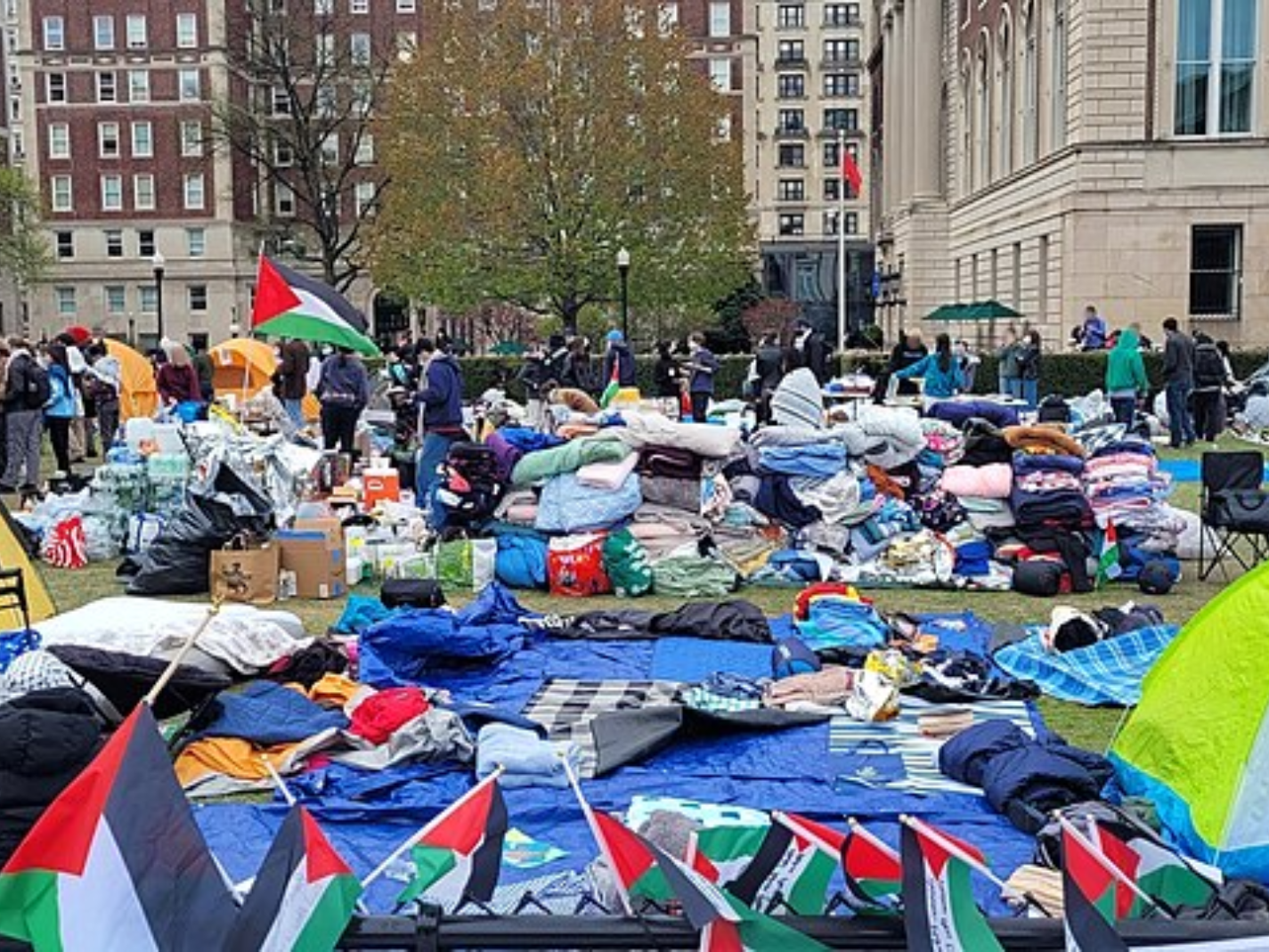
On February 1, reports emerged that Liu Lijun, a Chinese national studying at the University of California, Los Angeles, is facing deportation after participating in anti-Israel protests on campus.
Liu’s case marks one of the first applications of an executive order signed by President Donald Trump on January 29.
This order targets—among other things—foreign students involved in anti-Semitic activism, signaling a significant escalation in the administration’s efforts to address the surge in anti-Israel protests that have swept U.S. campuses since the October 7, 2023, Hamas attack on Israel. Under the order, the government is working with university administrators to monitor activities “by alien students and staff” and, when necessary, take action “to remove such aliens.”
[RELATED: Reflections on Pro-Palestinian Protests]
Trump’s tough stance on this issue was clear even during his campaign when he vowed to deport foreign nationals involved in pro-terrorist activism. Upon assuming office, he doubled down: In a White House-distributed fact sheet, Trump declared:
To all the resident aliens who joined in the pro-jihadist protests, we put you on notice … we will find you, and we will deport you. I will also quickly cancel the student visas of all Hamas sympathizers on college campuses, which have been infested with radicalism like never before.
Liu’s deportation proceedings are the first concrete indication that the administration is serious about enforcing these promises—and rightfully so.
The protests in question began at Columbia University in early 2024 with the establishment of a Gaza Solidarity Encampment, as I previously reported.
Soon, similar demonstrations erupted nationwide, with students demanding their universities divest from Israel—a largely symbolic gesture with minimal financial effect but significant ideological fervor. These protests received surprising criticism from mainstream media and even prompted FBI Director Christopher Wray to warn of rising anti-Semitic violence built on increased financial support from Iran and other Gulf States.
While the protests themselves were alarming, the environment that enabled them was even more troubling. Universities, by failing to enforce their own policies, effectively signaled tacit approval of anti-Semitic rhetoric. Student activists, emboldened by this inaction, treated arrests as badges of honor rather than a real consequence. Social media amplified their actions, turning protesters into ideological martyrs and fueling a cycle of performative activism that spiraled out of control. The protests also exposed the naivety of calls for institutional neutrality—allowing universities to deflect blame while chaos reigned.
Despite all the violence on campuses in recent years, Trump’s crackdown is not without controversy. The Foundation for Individual Rights and Expression (FIRE), for example, argues that expelling students for political speech undermines the principles of free expression. However, FIRE should be reminded that the First Amendment does not protect harassment, intimidation, or vandalism—actions that these protests largely consisted of.
Aside from FIRE’s objections—and the predictable left-wing rants against enforcement—Trump is garnering significant support. Betar, a “LOUD PROUD ZIONIST” group, for example, is actively aiding the effort to identify protest participants by using facial recognition technology to target students involved in anti-Israel activism. In fact, Betar told Salon that it has handed over a list of foreign students and teachers to the administration, arguing that their actions warrant expulsion from the country.
These actions are putting pro-Hamas groups like Students for Palestine on the defensive. In a statement to ABC 7 News, Jayden Joeckel, a University of San Francisco student with the group, said, “It is scary knowing that we have to be cognitive about ICE coming into our campus. It is scary that we have to worry about DHS stalking our students and keeping tabs on them for activism.”
Meanwhile, universities appear to be scrambling to address anti-Semitism through less extreme measures—likely in an attempt to appease an administration that won’t tolerate the status quo.
Harvard, for example, recently adopted the International Holocaust Remembrance Alliance (IHRA) definition of anti-Semitism in response to two lawsuits. The definition includes holding Israel to a “double standard” or calling its creation a “racist endeavor.” Critics argue that the definition is too broad and could stifle legitimate criticism of Israel. But as one Jewish professor told me:
While free speech groups may argue that the IHRA definition of anti-Semitism is too narrow and will chill speech and open inquiry, this definition as a guide and the settlement sends a strong message that the discourse and behavior that has been pervasively anti-Semitic and dangerous for Jewish students will no longer be tolerated and ignored. There is time to create more nuanced policy and protocols and some believe that this definition does not harm expression.
[RELATED: Anti-Semitic Protesters]
“For now, we have a position that the out of control behavior that campuses have had to manage since October 7th of 2023 must stop and calling for the destruction of a group’s homeland and the death of their people is no longer going to be acceptable or permissible,” the professor concluded.
Liu’s case is likely not the last we’ll see. Her deportation sends a strong message that the administration is committed to rooting out extremism.
Universities would do well to support this effort, but their responses will likely vary. Some may continue to defy enforcement, as we’ve seen with illegal immigration enforcement, while others, perhaps in an effort to restore their credibility with the public, may take action to remove violent activist students. The real test will be whether higher education institutions prioritize safety and accountability over ideological fervor.
Follow Jared Gould on X
Image: Columbia reinstated Gaza Solidarity Encampment tents by عباد ديرانية on Wikimedia Commons

She’s Chinese — why’s she involved?
Hmmmm….